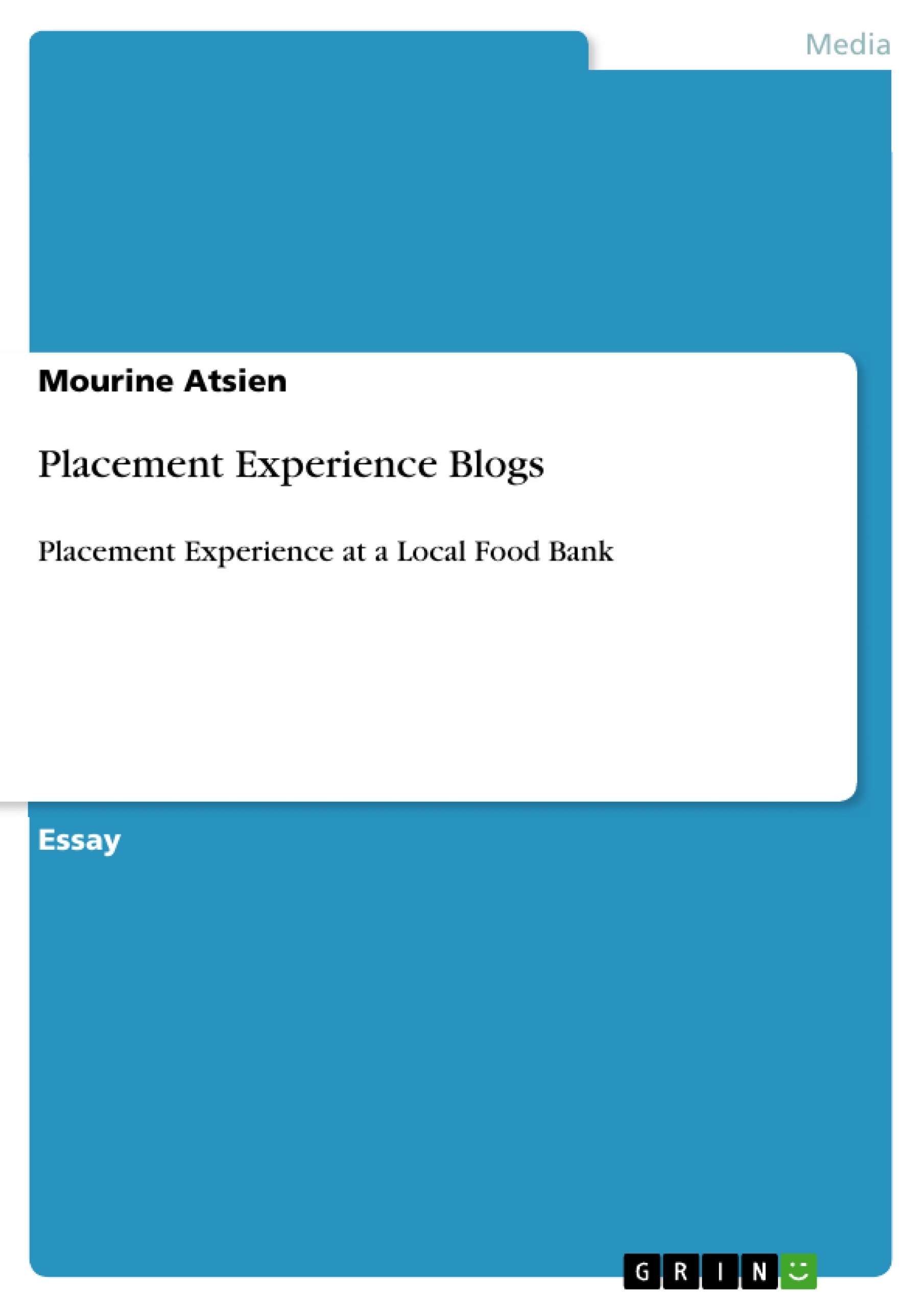During the COVID-19 pandemic, many people lost their sources of income, leading to an increase in the demand for food assistance. Food banks became the ultimate alternative as families and children attempted to avoid hunger. However, the selection of people who are eligible for food rations can be a challenge. For instance, there was a need to assess communities, households, income levels, and the severity of the need for assistance. Working with the community need assessment team from a local food bank, I was able to engage with diverse members of the community. Therefore, in this essay, I reflect on my role at the food bank and the gains I made from the placement experience as a form of civic engagement. [...]
Inhaltsverzeichnis (Table of Contents)
- Placement Experience Blogs
- Blog 1: Placement Experience at a Local Food Bank
- Blog 2: Lessons Learnt From My Placement at a Local Food Bank
- Blog 3: Civic Engagement at a Local Food Bank
Zielsetzung und Themenschwerpunkte (Objectives and Key Themes)
This collection of blog entries explores the author's experiences with civic engagement through their placement at a local food bank. The author aims to reflect on the personal and professional growth gained from these experiences, emphasizing the significance of civic engagement in addressing community needs.
- The nature of civic engagement and its impact on community development.
- The role of volunteer work in promoting community values and strengthening social bonds.
- The practical application of civic engagement skills in real-life situations.
- The challenges and rewards of working with diverse populations in a community setting.
- The importance of understanding individual needs and motivations in shaping effective civic engagement opportunities.
Zusammenfassung der Kapitel (Chapter Summaries)
Blog 1: Placement Experience at a Local Food Bank
This blog entry describes the author's experience working with a community need assessment team at a local food bank during the COVID-19 pandemic. The author discusses the importance of civic engagement, highlighting the value of community service and active participation in addressing social issues. The author also reflects on the challenges of conducting needs assessments and engaging with individuals from diverse backgrounds.Blog 2: Lessons Learnt From My Placement at a Local Food Bank
This blog focuses on the author's experiences working at the customer service desk and sorting area of a food bank. The author emphasizes the impact of poverty on individuals and communities, highlighting the role of civic engagement in addressing social problems such as hunger. The author also discusses the importance of understanding and respecting diversity within a community setting.Blog 3: Civic Engagement at a Local Food Bank
This blog entry delves into the broader concept of civic engagement as a collective action aimed at social change. The author shares their experience working in various departments at a local food bank, highlighting the importance of teamwork and understanding individual needs. The author emphasizes the value of placement experiences in fostering a sense of personal value and promoting civic engagement within the community.
Schlüsselwörter (Keywords)
This work focuses on the themes of civic engagement, community service, volunteer work, food security, poverty, diversity, and social change. The author draws upon theoretical frameworks and empirical research to provide a nuanced understanding of the complexities involved in engaging with communities and addressing social issues through active participation.
Frequently Asked Questions
What is civic engagement in the context of a food bank?
It involves active participation in community service to address social issues like hunger and poverty, fostering social change and community development.
How did COVID-19 impact the demand for food assistance?
The pandemic caused many individuals to lose their income, leading to a significant surge in demand for food rations at local food banks.
What is a community need assessment?
It is a process to evaluate income levels, severity of need, and household situations to ensure food rations are distributed to those who need them most.
What roles can volunteers take at a food bank?
Volunteers can work in various departments, including customer service desks, sorting areas, and assessment teams.
What are the professional gains from a placement experience?
Placements help develop skills in teamwork, understanding diverse populations, and applying theoretical frameworks to real-life social problems.
- Arbeit zitieren
- Mourine Atsien (Autor:in), 2022, Placement Experience Blogs, München, GRIN Verlag, https://www.grin.com/document/1326037



